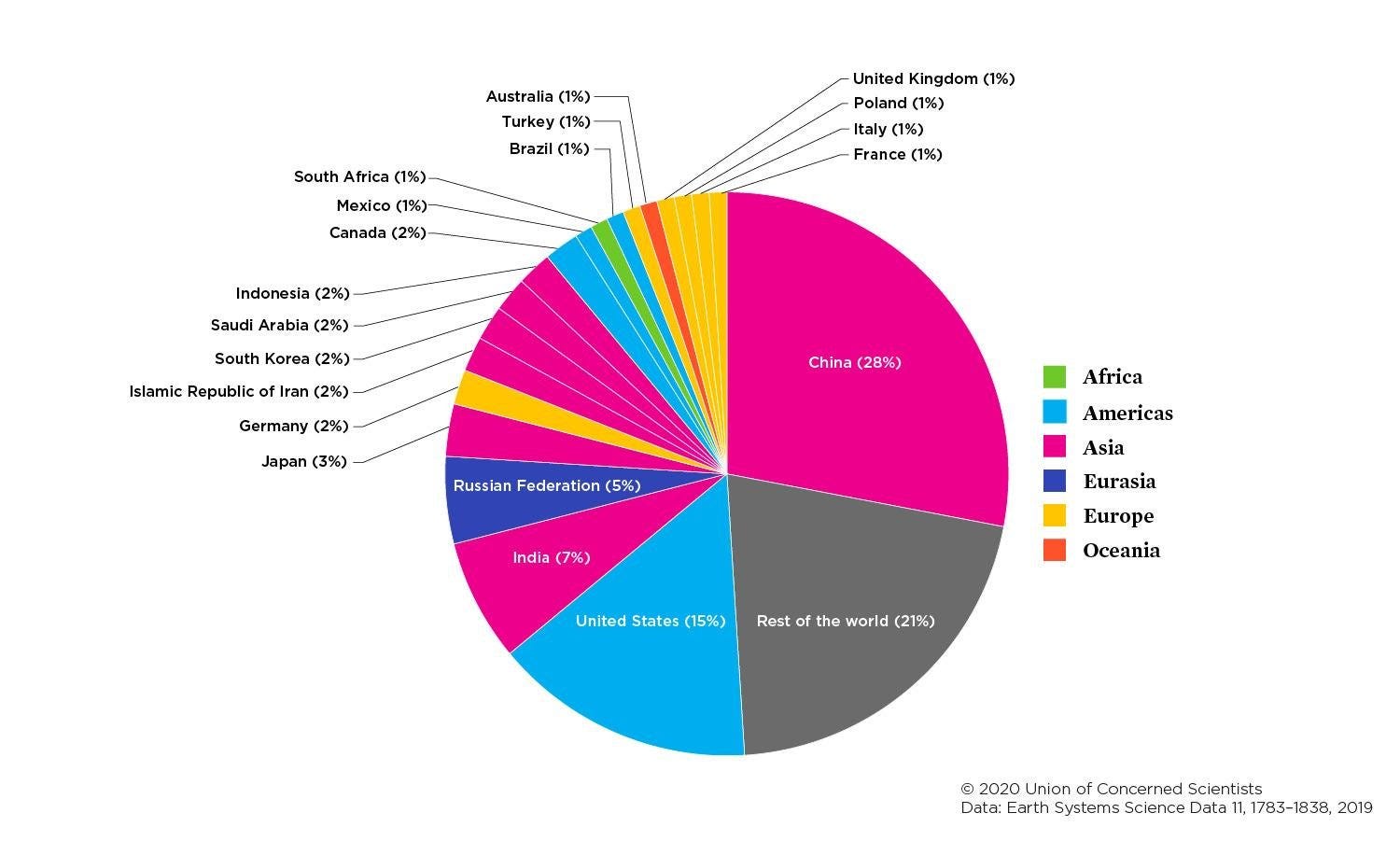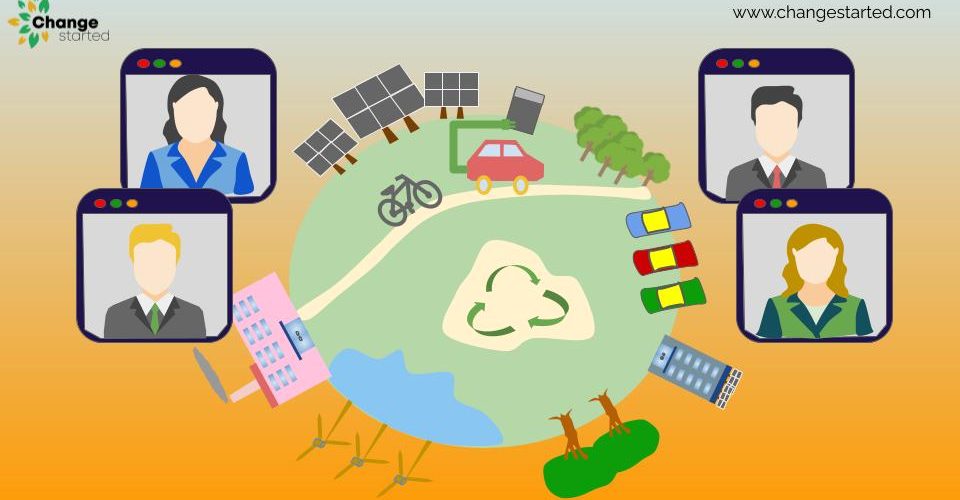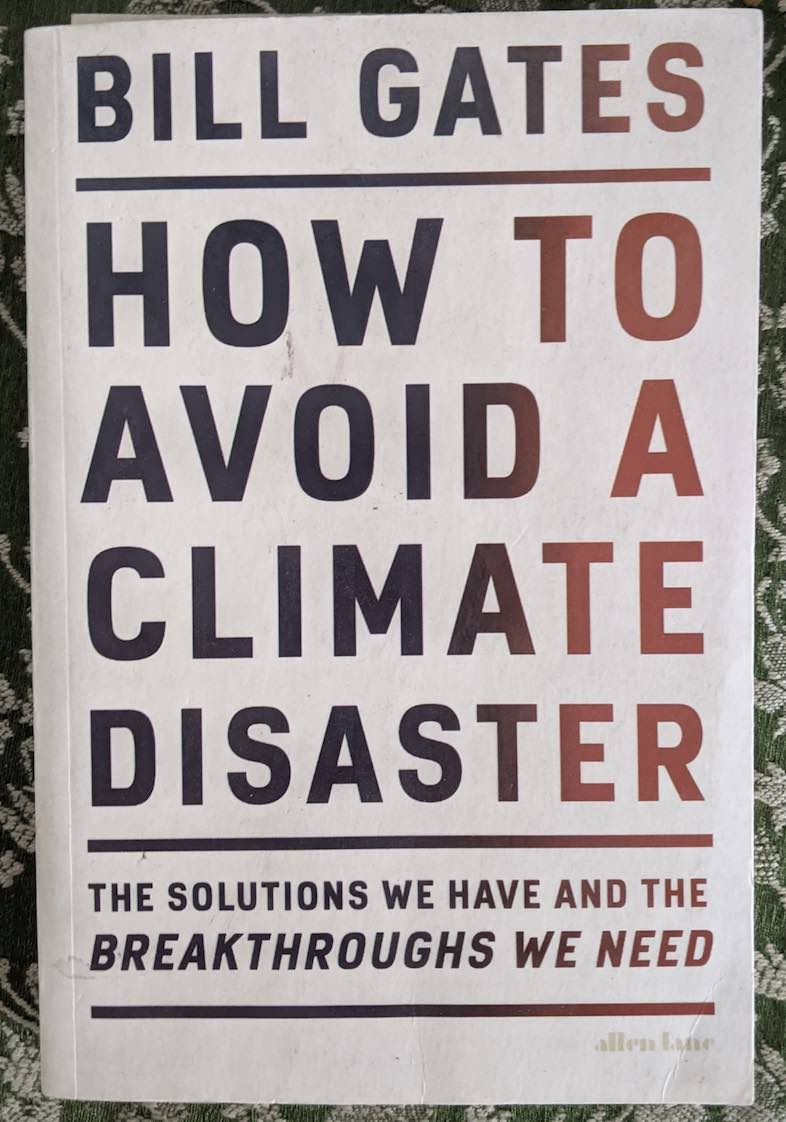Here are the highlights of the Leaders Climate Summit, held virtually on April 22 and 23, 2021.
- The US, the world’s second-biggest emitter, made a new pledge to cut greenhouse gas emissions by at least 50% by 2030 compared with 2005 levels.
- Japan announced that it will cut emissions by 46% below 2013 levels by 2030
- Canada raised its target for greenhouse gas reductions to 45% by 2030 based on 2005 levels.
- The Republic of Korea will end all external financing of coal.
- Developing countries Bangladesh, Indonesia, and South Africa advised increasing financial assistance to meet their climate and development goals.
Earth Day 2021 saw the USA leading a virtual climate summit that brought world leaders, government representatives, industry experts, and environmentalists from over 40 countries to deliberate on climate change and draw plans for climate action.
The 40 countries included 17 major economies that are responsible for 80% of global emissions.

The summit was a precursor event to the COP26 conference due to be held in Glasgow this November, where countries are expected to commit further cuts in carbon emissions.
The leader’s climate summit was also an effort from the new US administration to reestablish US leadership in the fight against climate change and demonstrate that climate is at the center of US diplomacy.
While most of the world leaders spent their time explaining their respective country’s ongoing efforts, additionally a few notable announcements were made. The USA, Japan, Canada, and the UK made fresh commitments for the current decade.
The USA, which is the world’s second-largest greenhouse gas emitter with 15% of global emissions, pledged to cut fossil fuel emissions by 52% by 2030. US President also announced to double the climate finance from previous levels to combat the climate crisis in the U.S. and abroad.
China, the world’s biggest emitter, with 28% of global emissions did not make any pledge, but the Chinese President mentioned limiting the increase of coal-fired power generation projects and ultimately phasing out by 2030. This is significant considering the Asian giant is the world’s biggest consumer of coal.
Japan, the world’s third-largest economy, announced that the country will cut emissions by 46–50% by 2030 from 2013 levels, which is almost double the previous goal of 26%.
Canada will cut its emissions by 40–45% by 2030, compared to 2005 levels, a massive improvement from the previous goal of 30%.
South Korea committed to going carbon neutral by 2050 and also made a significant announcement that it would end public financing for overseas coal power plants. Along with China and Japan, South Korea is a major financer of coal projects outside its borders.
The United Kingdom announced its plans to reduce carbon emissions by 78% compared to 1990 levels by 2035. UK will play host to the COP26 summit in November, hence it is pertinent that a host nation leads from the front in the climate efforts.
In comparison, European Union pledged to reduce emissions among its member states by 55% by 2030. The European Commission President also wants Europe to be the first climate-neutral continent in the world.
In the lead-up to the summit, U.S. Special Presidential Envoy for Climate John Kerry made physical visits to Europe, India, China, UAE, and Bangladesh.
Probably as a consequence of the visit to India a new clean energy partnership was announced between India and the US. The partnership will aim to accelerate developments in the clean energy sector and decarbonizing the transportation & housing sectors.
On the other hand, the United States and UAE, along with UK, Australia, Brazil, Denmark, Israel, Singapore, and Uruguay, announced plans to launch the Agriculture Innovation Mission for Climate (AIM for Climate). The objective of this partnership is to increase investment in research and development on agriculture and food systems with respect to climate action.
Israel committed to close coal-based power plants by 2025, switching to 100% renewable sources by 2050, and investing in battery storage capabilities.
Denmark pledged to end oil and gas exploration in the North Sea and also mentioned the construction of a new artificial island that will serve as a wind energy hub.
Global financial hub, Singapore constrained by its small size will develop one of the world’s largest inland floating solar farms to augment its renewable capabilities.
Developing economies, Brazil, Vietnam, and Bangladesh called for increasing the financial and technological assistance by the developed countries to ensure a sustainable green transition.
Implementation will be Key
During the summit, Brazil’s President committed to increasing the spending to end illegal deforestation by 2030. A few hours later the President approved a 24% cut to the environment budget for 2021 from the previous year’s level.
Commitments are made, but how well they are kept and implemented will be something that the world will be watching.
Even John Kerry recognizes that, in his response, he mentioned: “We had to restore America’s credibility, we had to prove we were serious, and I think that today does that in many ways, and not in a chauvinistic – in a way that is sort of inappropriate to our relationship with other countries, but in a way that reinforces the fact that … we need to bring all the countries in the world to the table, we all need to raise ambition,”.
Views and Reactions of the Leaders Climate Summit
While many people welcomed the announcements made by the head of states, but at the same time, there is skepticism about its implementation and adherence. The scientific community believes the new targets do not match the requirement to limit the earth warming at 1.5 degrees Celsius above pre-industrial levels, a goal set by the 2015 Paris Agreement.
Like in the case of the USA, new targets “is still about 5% to 10% points short of a 1.5˚C compatible 2030 target” as per Climate Action Tracker.


Many prominent voices across the globe have warned that rhetoric at the leader’s climate summit will not be matched with reality by most of these countries.
Hence it is no surprise that most of the announcements made at the Leaders Climate Summit got a fair share of criticisms from the leading voices of the environmental organizations and civil society members.
“While this new commitment is a positive step in the right direction and worth celebrating, more action is urgently needed to avert dangerous climate change impacts that are already disproportionately harming those who are most vulnerable, especially women and marginalized communities. The richest one percent of the world’s population are responsible for more than twice as much carbon pollution as the 3.1 billion people who make up the poorest half of humanity. Yet it is the world’s poorest who are hit the hardest by the impacts of climate change. As the world’s richest country and largest historical emitter of greenhouse gases, the US owes it to the world’s most vulnerable to increase its emissions reductions target in order to prevent additional climate change impacts.”– Abby Maxman, President and CEO of Oxfam America.
“We cannot win this fight against climate change unless we go globally to fight it together,” – President of Kenya.







Add comment